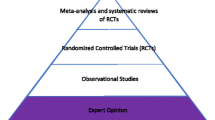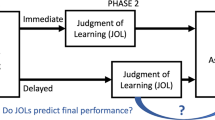Abstract
This article presents a new theory of expertise development in medicine and the empirical evidence available. This theory describes expertise development as the progression through a series of consecutive phases, each of which is characterized by functionally different knowledge structures underlying performance. The first phase is characterized by the accumulation of causal knowledge about disease and its consequences. Through experience with real cases, this knowledge transforms into narrative structures called illness scripts. The cognitive mechanisms responsible for this transition are: Encapsulation of elaborated knowledge into high level but simplified causal models or even diagnostic categories and tuning through the inclusion of contextual information. The third phase is characterized by the use of episodic memories of actual patients in the diagnosis of new cases. It is assumed that knowledge acquired in different phases form layers in memory through a sedimentation process. These knowledge sediments, although usually not applied any more in subsequent phases in the development of expertise, remain available for use when ontologically more recently acquired structures fail to produce an adequate representation of a clinical problem.
Similar content being viewed by others
References
Allen, S. W., Norman, G. R., and Brooks, L. R. (1988).Effects of Prior Examples on Rule-Based Diagnostic Performance. Paper presented at the Annual Meeting of the American Educational Research Association, New Orleans.
Anderson, J. R. (1983).The Architecture of Cognition Harvard University Press, Cambridge, MA.
Anderson, J. R. (1987). Skill acquisition: Compilation of weak-method problem solutions.Psychol. Rev. 4: 92–210.
Boshuizen, H. P. A. (1989).De Ontwikkeling van Medische Expertise; een Cognitief-Psychologische Benadering. (On the Development of Medical Expertise; A Cognitive Psychological Approach.) Doctoral dissertation, University of Limburg, Thesis Publishers, Haarlem, The Netherlands.
Boshuizen, H. P. A., and Schmidt, H. G. (1992). The role of biomedical knowledge in clinical reasoning by experts, intermediates and novices.Cognit. Sci. 16: 153–184.
Boshuizen, H. P. A., Schmidt, H. G., and Coughlin, L. D. (1987).On-Line Representation of a Clinical Case and the Development of Expertise. Paper presented at the Annual Meeting of the American Educational Research Association, Washington, D.C.
Brooks, L. R. (1987). Decentralized control of categorization: The role of prior processing episodes. In Neisser, U. (ed.),Concepts and Conceptual Development Cambridge University Press, New York.
Carey, S. (1985).Conceptual change in childhood. MIT Press, Cambridge, MA.
Chi, M. T. H., Feltovich, P. J., and Glaser, R. (1981). Categorization and representation of physics problems by experts and novices.Cognit. Sci. 5: 121–152.
Chi, M. T. H., Glaser, R., and Rees, E. (1982). Expertise in problem solving. In Sternberg, R. (ed.),Advances in The Psychology of Human Intelligence Erlbaum, Hillsdale, NJ, pp. 7–76.
Chi, M. T. H., Glaser, R., and Farr, M. J. (1988).The Nature of Expertise. Erlbaum, Hillsdale, NJ.
Claessen, H. F. A. and Boshuizen, H. P. A. (1985). Recall of medical information by students and doctors.Med. Educ. 19: 61–67.
Coughlin, L. D. J., (1986). The Effect of Randomization on the Free Recall of Medical Information by Experts and Novices, M. A. Thesis, McGill University, Montréal, Canada.
DeGroot, A. D. (1946).Het Denken van den Schaker. (Thinking Processes in Chess Players.) Noord Holland, Den Haag, The Netherlands.
Feltovich, P. J. and Barrows, H. S. (1984). Issues of generality in medical problem solving. In Schmidt, H. G., and de Volder, M. L. (eds.),Tutorials in Problem-Based Learning Van Gorcum, Assen.
Hassebrock, F., Bullemer, P., and Johnson, P. E. (1988).Wenn Less is More: Selective Memory of Problem-Solving Experts. Paper presented at the Annual Meeting of the American Educational Research Association, New Orleans.
Hobus, P. P. M., Schmidt, H. G., Boshuizen, H. P. A., and Patel, V. L. (1987). Contextual factors in the activation of first diagnostic hypotheses: Expert-novice differences.Med. Educ. 21: 471–476.
Hobus, P. P. M., Hofstra, M. L., Boshuizen, H. P. A., and Schmidt, H. G. (1988). De context van de klacht als diagnosticum. (The context of the complaint as a diagnostic tool.)Huisarts en Wetenschap 31: 261–267.
Kintsch, W., and Greeno, J. G. (1985). Understanding and solving word arithmetic problems.Psychol. Rev. 92: 109–129.
Laird, J. E., Rosenbloom, P. S., and Newell, A. (1986). Chunking in SOAR: The anatomy of a general learning mechanism.Machine Learn. 1: 11–46.
Lesgold, A. M. (1984). Acquiring expertise. In Anderson, J. R., and Kosslyn, S. M. (eds.),Tutorials in Learning and Memory Freeman, San Francisco, CA.
Lesgold, A., Rubinson, H., Feltovich, P. J., Glaser, R., Klopfer, D., and Wang, Y. (1988). Expertise in a complex skill: Diagnosing X-ray pictures. In Chi, M. T. H., Glaser, R., and Farr, M. (eds.),The Nature of Expertise Earlbaum, Hillsdale, NJ, pp. 311–342.
Muzzin, L. J., Norman, G. R., Feightner, J. W., and Tugwell, P. (1983). Expertise in Recall of Clinical Protocols in Two Specialty Areas.Proceedings of the 22nd Conference on Research in Medical Education, Washington, D.C.
Norman, G. R., Rosenthal, D., Brooks, L. R., Allen, S. W., and Muzzin, L. J. (1989). The development of expertise in dermatology.Arch. Dermatol. 125: 1063–1068.
Patel, V. L., and Groen, G. J. (1986). Knowledge-based solution strategies in medical reasoning.Cognit. Sci. 10: 91–116.
Patel, V. L., and Medley-Mark, V. (1986).Relationship Between Representation of Textual Information and Underlying Problem-Representation in Medicine. CME Report CME86-CS1, McGill University, Montreal.
Patel, V. L., Arocha, J. F., and Groen, G. J. (1986a). Strategy selection and degree of expertise in medical reasoning. InProceedings of the 8th Annual Conference of the Cognitive Science Society Lawrence Erlbaum, Hillsdale, NJ.
Patel, V. L., Evans, D. A., and Chawla, A. S. (1986b). Predictive versus diagnostic reasoning in the application of biomedical knowledge. InProceedings of the 8th Annual Conference of the Cognitive Science Society Lawrence Erlbaum, Hillsdale, NJ.
Patel, V. L., Evans, D. A., and Groen, G. J. (1989). Biomedical knowledge and clinical reasoning. In Patel, V. L., and Evans, D. A. (eds.),Cognitive Science in Medicine: Biomedical Modeling MIT Press, Cambridge, MA., pp. 53–112.
Peeck, J., Van den Bosch, A. B., and Kreupeling, W. J. (1982). The effect of mobilizing prior knowledge on learning from text.J. Educ. Psychol. 74: 771–777.
Schmidt, H. G., and Boshuizen, H. P. A. (1992). Encapsulation of biomedical knowledge. In Evans, D. A., and Patel, V. L. (eds.),Advanced models of cognition for medical training and practice Springer Verlag, New York, NY.
Schmidt, H. G., and Boshuizen, H. P. A. (1993).On the origin of intermediate effects in clinical case recall. Memory & Cognition, in press.
Schmidt, H. G., Boshuizen, H. P. A., and Hobus, P. P. M. (1988). Transitory stages in the development of medical expertise: The “intermediate effect” in clinical case representation studies. InProceedings of the Cognitive Science Society Meeting Lawrence Erlbaum, Hillsdale, NJ.
Schmidt, H. G., Norman, G. R., and Boshuizen, H. P. A. (1990). A cognitive perspective on medical expertise: Theory and implications.Acad. Med. 65: 611–621.
Vosniadou, S., and Brewer, W. F. (1987). Theories of knowledge restructuring in development.Rev. Educ. Res. 57: 51–67.
Voss, J. F., Greene, T. R., Post, T. A., and Penner, B. C (1983). Problem-solving skill in the social sciences. In Bower, G. H. (ed.),The Psychology of Learning and Motivation: Advances in Research and Theory (Vol. 17), Academic Press, New York, pp. 165–213.
Whineburg, S. S. (1991). Historical problem solving: A study of the cognitive processes used in the evaluation of documentary and pictorial evidence.J. Educ. Psychol. 83: 73–87.
Author information
Authors and Affiliations
Rights and permissions
About this article
Cite this article
Schmidt, H.G., Boshuizen, H.P.A. On acquiring expertise in medicine. Educ Psychol Rev 5, 205–221 (1993). https://doi.org/10.1007/BF01323044
Issue Date:
DOI: https://doi.org/10.1007/BF01323044




